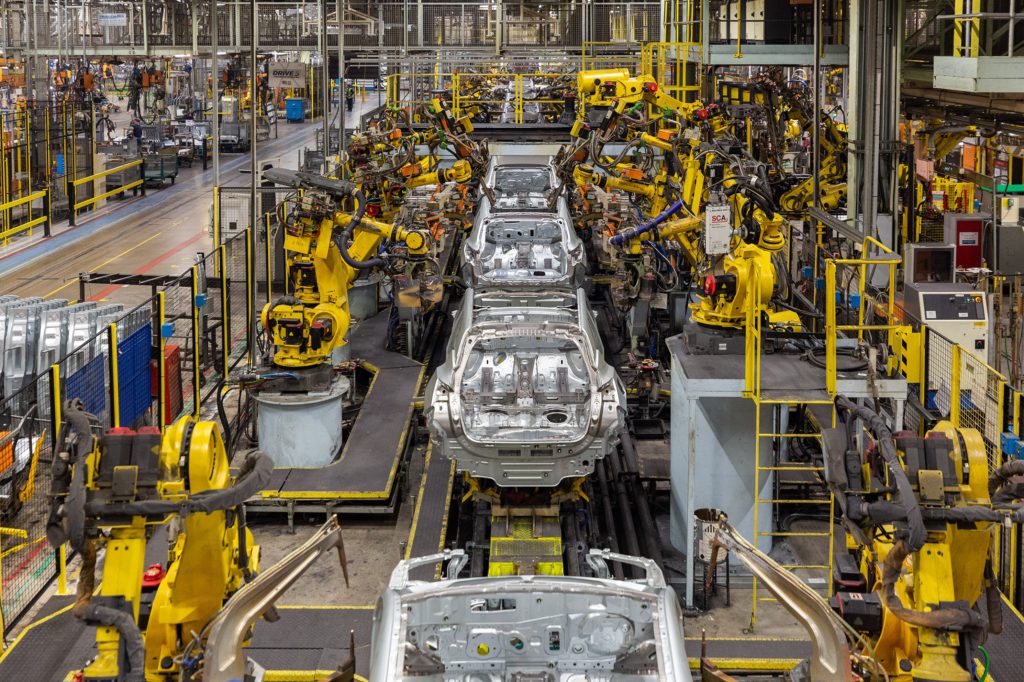UK car production to mirror registration decline
07 April 2020

7 April 2020
UK car production fell by just 0.8% in February, according to figures released by the Society of Motor Manufacturers and Traders (SMMT) on 27 March. A total of 122,171 vehicles rolled off production lines in the month, representing a loss of just over 1,000 units compared with February 2019. However, with car-manufacturing plants on shutdown as the country focuses efforts on overcoming the coronavirus (COVID-19) crisis, significant declines in car-production figures are inevitable.
An initial assessment commissioned by the SMMT suggests a loss of around 200,000 units by the end of 2020, to just under 1.1 million – a fall of 18% compared to 2019, in line with the Autovista Group base-case forecast for new–car registrations. As with the new-car market, the impact on car production in the UK could be far more severe this year if the crisis, and therefore plant shutdowns, lasts for months instead of weeks.
′Despite the myriad global challenges the UK automotive industry has faced in recent times, it remains fundamentally strong and February’s figures reflect that. However, these figures also reflect the calm before the storm. With UK car plants now effectively on national shutdown and many global markets closed, the outlook is of deep concern,’ Mike Hawes, SMMT chief executive commented.
′We wholeheartedly welcome government’s extraordinary package of emergency support for businesses and workers, but this must get through to businesses now. If we’re to keep this sector alive and in a position to help Britain get back on its feet, we urgently need funding to be released, additional measures to ease pressure on cash flow and clarity on how employment support measures will work.’
Restarting production
‘The outlook for UK car output in 2021 will, at least early in the year, be largely dictated by the duration of the plant shutdowns in 2020. Whether manufacturers can fully restart production after the COVID-19 risk has passed, or if it will only ramp up again slowly, remains to be seen. The more downtime in 2020, the more plants will be playing catch-up in 2021,’ said Neil King, senior data journalist at Autovista Group.
However, vehicle manufacturers with plants in the UK may be best placed to ride out the current production shutdowns, thanks to their Brexit contingency planning.
The future of the UK car-manufacturing sector also depends on the outcome of the negotiations on the terms of the UK’s future trading relationship with the EU. This process has inevitably been disrupted by the COVID-19 pandemic and if an agreement cannot be reached before the end of the transition phase, on 31 December 2020, WTO trade rules could be applied. This would result in higher prices for cars as well as for replacement parts and, in turn, insurance.
Demand-led
Finally, production levels will naturally be adjusted to the level of demand for new cars in the UK, Europe, and globally, which hinges on how swiftly economies recover.
In Autovista Group’s base-case scenario, year-on-year GDP growth of 0% to -2% is forecast in the Eurozone. Even in this scenario, the Eurozone will not be fully back to its economic strength by the end of 2021.
The UK is even more pessimistic about the economic consequences of the combination of COVID-19 and the Brexit aftermath. There is little trust in how the UK government has been dealing with the crisis and whatever pent-up demand there may be, the fragility of the economy is hugely concerning.